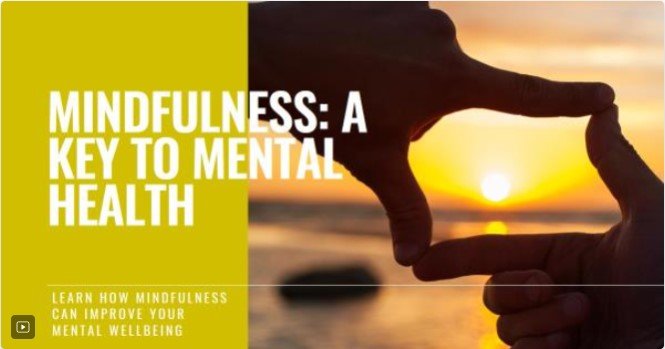Is 8 eggs a day too much?
I love eggs and used to eat them in big amounts, enjoying their taste and protein. But sometimes I worried about eating too many due to cholesterol concerns. People often caution against a lot of eggs. Still, is there actually a clear daily limit for egg consumption, or is the issue more complex?
Key Takeaways
- Eggs are packed with vitamins, minerals, antioxidants, protein, and good fats.
- The connection between eating eggs and heart disease used to be a bigger worry, but discussions keep going on.
- For most healthy folks, having 1-2 eggs daily might be okay and even good, but those with certain risks might need to watch their intake.
- It’s smart to chat with a healthcare expert to figure out the best amount of eggs for you, given your health and risks.
- How you cook your eggs and eating them alongside a varied, balanced diet are important too.
The Debate Around Eggs and Cholesterol
Eggs are known to be rich in egg nutrition. They have many good compounds and nutrients that fight diseases. For a long time, some experts thought eggs’ cholesterol would lead to heart issues. This made them tell people to not eat eggs often. Yet, recent studies show that eating eggs might not be that bad. Still, there’s a lot of discussion on this.
Eggs: A Nutritional Powerhouse
Eggs are full of nutrients. They have top-grade protein, vitamins, minerals, and antioxidants. These include vitamins A, D, E, and the B-complex. Also, eggs have minerals like iron, phosphorus, and zinc. Plus, they have choline and lutein which help your brain and eyes.
Historical Concerns about Cholesterol in Eggs
For a long time, experts said we should watch how many eggs we eat. They thought eating too many could lead to heart problems. This idea was based on thinking that egg cholesterol would raise blood cholesterol. This could then lead to heart disease risks.
Evolving Research on Eggs and Heart Disease Risk
But, newer studies came out, challenging this view. They show eating a moderate amount of eggs might be okay. They looked at many people, including those with diabetes or high cholesterol. They found no clear links between eggs and heart disease.
Do Eggs Raise Cholesterol Levels?
The link between eggs, cholesterol, and heart problems is debated among scientists. Recent studies suggest that eating eggs might not raise heart disease risk or factors related to it. However, other research points to a connection between eating eggs, cholesterol, and a higher risk of health issues and death.
These mixed findings underline the importance of more research. We need to fully grasp how eggs and cholesterol interact. Only then will we know the actual impact of eggs on health.
Observational Studies and Meta-Analyses
Studies that observe trends (observational studies) and analyze findings (meta-analyses) suggest a different perspective. They indicate that eating eggs regularly might not lead to more heart disease or high cholesterol.
Randomized Controlled Trials
Randomized controlled trials go a step further in testing dietary effects. Some have looked at how eggs affect cholesterol. Yet, these trials often have small groups, which weaken their results.
Conflicting Evidence and Need for Further Research
The research’s mixed results show the complex nature of eggs, cholesterol, and heart risks. To truly understand the situation, experts suggest more in-depth studies. These studies should look into the effects of egg consumption on blood cholesterol across different groups.
Is 8 eggs a day too much?
Eating too many eggs may be risky for some people. This depends on your genetics and health. For an adult with good cholesterol and health, 1-2 eggs daily can be fine.
Factors Influencing Safe Egg Consumption
If you’re battling high cholesterol or heart risks, limit eggs. Aim for 1 egg a day or 4-5 a week. Talk to a doctor about how many eggs are safe for you.
Recommendations for Healthy Adults
For an adult with average cholesterol, 1-2 eggs each day could be good. Some studies say it’s healthy.
Considerations for High-Risk Groups
Those with high cholesterol or heart issues should have fewer eggs. Stick to 1 a day or 4-5 weekly. A doctor can advise how many you should eat.
Egg Whites vs. Whole Eggs
Many choose egg whites to lower their cholesterol. But, the yolk is full of vitamins, minerals, and healthy fats. These are key for our health.
Nutritional Value of Egg Yolks
Egg yolks have much iron, vitamin D, as well as choline and lutein. These help with health from bones to preventing stress damage. For most people, eating whole eggs now and then is safe for the heart.
Moderation for Those at High Risk
If heart disease or high cholesterol worries you, focus on egg whites. Eat egg yolks less often. This might keep your cholesterol from going up and lower heart risks. Talking to a health expert is wise to know how many eggs are right for you.

Eggs, Cholesterol, and Heart Disease Risk
Research has changed our view on eggs, cholesterol, and heart disease over time. Too much of certain fats can boost your cholesterol levels. This might up your heart disease risk.
Dietary Guidelines and Cholesterol Intake
The Dietary Guidelines for Americans don’t set a firm limit on daily cholesterol anymore. Now, they advise keeping it low to stay healthy. This new advice shows we’ve learned more about how diet affects our heart.
Differentiating “Good” and “Bad” Cholesterol
Cholesterol moves through your body with the help of two types: LDL and HDL. Too much LDL means more artery-clogging plaque. But HDL works to lower this risk by removing extra cholesterol from your system.
Incorporating Eggs into a Healthy Diet
Eggs are a great, inexpensive choice for good nutrition. They’re a vital part of a balanced diet. Choosing the right way to eat them is key. Boiling or poaching without salt or fat is the best. This keeps your meal low in calories, bad fats, and sodium. Avoid fried eggs or ones with salty, fatty foods like bacon. They can make your meal unhealthy fast.
Preparation Methods and Portion Control
For the healthiest option, cook eggs with little to no added fats. Boiling or poaching your eggs gets the most out of their nutrition. It’s also wise to watch how many you eat at once. Overdoing eggs can lead to too many calories and extra cholesterol.
Balancing Egg Consumption with Overall Diet
Adding eggs to your diet requires thinking about what else you eat. While eggs are nutritious, balance them with fruits, veggies, whole grains, and lean meats. By doing this, you create a diet that’s good for your health. This helps you get all the nutrients your body needs.

Individualized Recommendations
The right number of eggs per day or week changes for each person. It depends on your health and if you have family history of heart disease or high cholesterol. If you have diabetes or other health issues, this can also affect the amount of eggs you should eat.
Talk to a healthcare professional for the best advice on how many eggs you should have. They will look at your health goals and come up with an egg plan that’s right for you.
Consulting Healthcare Professionals
Health experts will look at your risks and health history to give you the perfect egg advice. They’ll check your health overall and your blood tests. Then, they’ll suggest how many eggs are best for you, considering your diet and heart health.
Considering Personal Risk Factors
If you share your family history, health problems, and lifestyle with the experts, they can help. They’ll recommend how to include eggs and stay healthy. This means you get advice that fits just for you and meets your goals.
Conclusion
The debate around eggs, cholesterol, and heart disease risk is complex. Different studies offer conflicting information. For most healthy adults, eating 1-2 eggs a day seems safe and might help your health. But, if you have risks like high cholesterol or a heart disease history, you might need to eat fewer eggs.
It’s important to talk to your doctor or a dietitian. They can help you figure out how many eggs are right for you. By eating eggs as part of a balanced diet, you can get their health benefits. This means keeping your heart health first.
Everyone’s egg tolerance is different. This is why getting advice tailored to your health is crucial. Your healthcare team can offer the best guidance. With their help, you can choose the right amount of eggs and stay on a healthy diet path. This supports your well-being.






